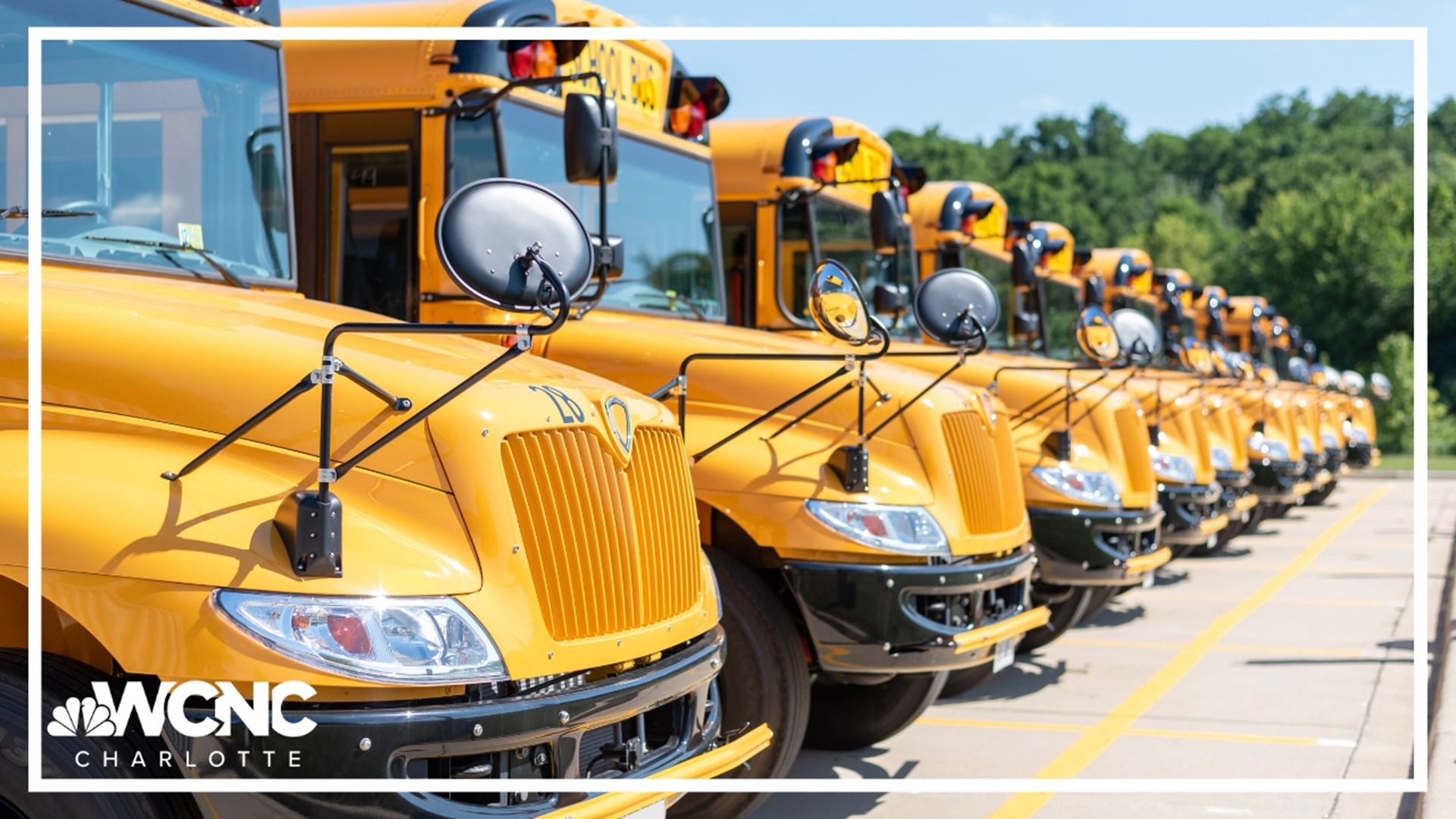CHARLOTTE, N.C. — The roads will soon be filled with more soft buzzes and sounds of electric school buses humming along the streets.
"Reducing emission, reducing pollution, and actually helping the public health for children is a priority," Chair of the Council on Environmental Quality Brenda Mallory said.
North Carolina will receive 114 electric buses from funding through the EPA Clean School Bus Program, and 27 of those buses will come to Charlotte, which will be distributed specifically to lower-income and rural communities.
The district says they're working ahead to iron out the kinks.
"We'll have to build the infrastructure here on site for the charging stations which obviously is a lot more than just the station," CMS Chief Operating Officer Brian Schultz said.
Schultz said they have to do everything they can to make sure they're running the underground to make sure they're electrified.
"It's a start, obviously, we welcome that," Sustain Charlotte's Eric Zaverl said. "Having clean air is critical to that whole process to be successful."
The contribution now makes Charlotte-Mecklenburg Schools the district with the largest electric bus fleet in the state with another three electric buses set to arrive by spring, totaling 30.
Zaverl said it’s a great start, but there’s lots of work left to be done.
CMS school leaders say the first three electric buses will arrive this spring, but they won’t be out on the roads until the 2024-2025 school year.
The additional 27 buses will hit the roads in 2025-2026, the district said all the new electric buses will be used for shorter routes to avoid having to stop and charge up during the commute.
"There's a range for the buses in terms of mileage, and then there's obviously a charging time associated with it," Schultz said.
Schultz said they will have to match that range and the charging time up with the routes.
In other efforts of preparation, the district says bus drivers will have to be trained before electric buses roll out.
CMS currently has more than 900 buses and the electric fleet only makes up roughly 3% of the entire fleet.
"It was kind of shocking to find out how many school buses there are in the state in comparison to how little of them are becoming electric," Zaverl said.
But this is a solution Zaverl said is only one part of a bigger issue.
"If we were able to convert all the cars tomorrow that we have currently all to electric it still wouldn't improve the walkability, the design, the other transportation choices," Zaverl said. "Looking at one problem at a time doesn't work without the bigger plan."
Contact Tradesha Woodard at twoodard1@wcnc.com and follow her on Facebook, X and Instagram.

